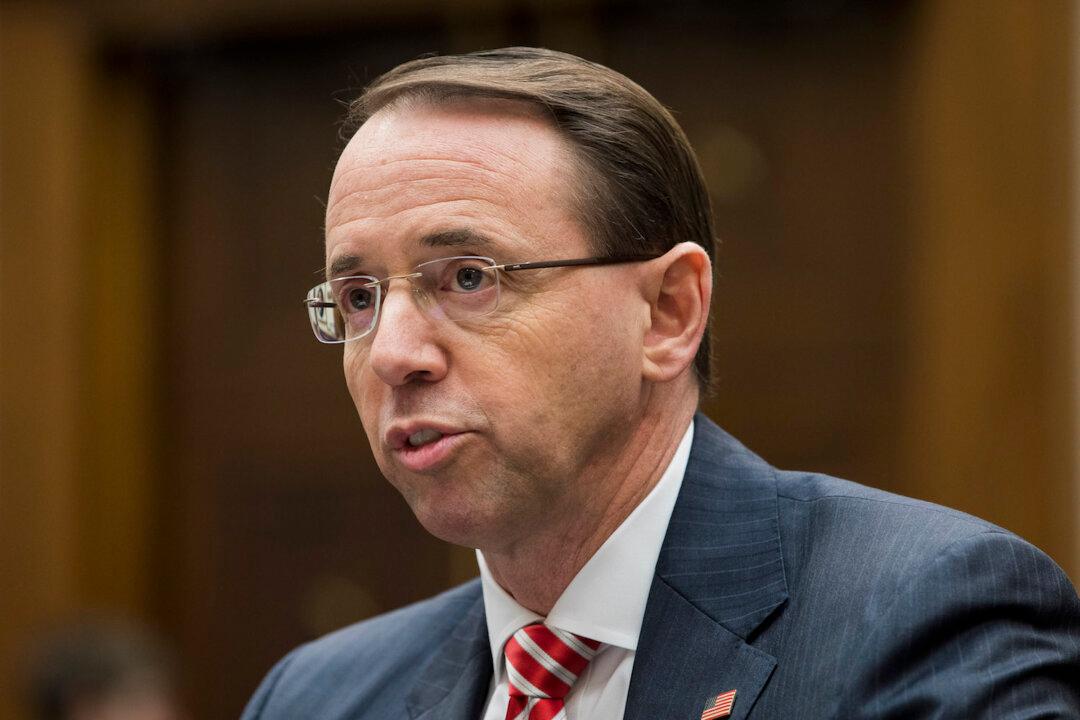President Donald Trump summoned Deputy Attorney General Rod Rosenstein to the White House on Thursday afternoon, according to Fox News. Rosenstein was seen leaving the White House after spending about an hour with the president.
The meeting took place days after the Russia investigation, which Rosenstein oversees, appeared to run out of bounds with FBI agents raiding the home, hotel room, and office of Trump’s personal lawyer, Michael Cohen, on Monday.





